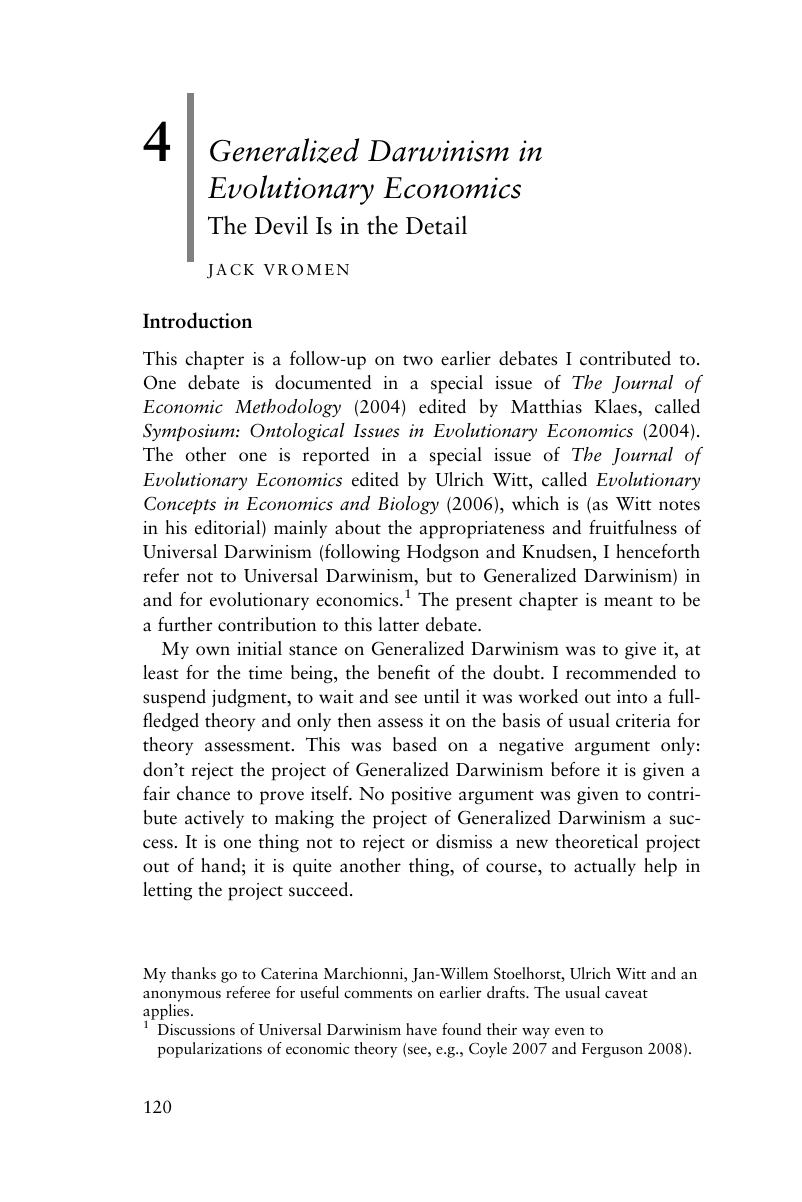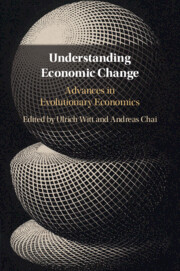Book contents
- Understanding Economic Change
- Understanding Economic Change
- Copyright page
- Contents
- Figures
- Tables
- Contributors
- Part I Introduction
- Part II Conceptual and Methodological Problems
- 2 Missed Connections and Opportunities Forgone
- 3 Science, Technology, and Knowledge
- 4 Generalized Darwinism in Evolutionary Economics
- Part III Perspectives on Evolutionary Macroeconomics
- Part IV Advances in Explaining and Assessing Institutional Evolution
- Part V Evolutionary Perspectives on Welfare and Sustainability
- Index
- References
4 - Generalized Darwinism in Evolutionary Economics
The Devil Is in the Detail
from Part II - Conceptual and Methodological Problems
Published online by Cambridge University Press: 10 November 2018
- Understanding Economic Change
- Understanding Economic Change
- Copyright page
- Contents
- Figures
- Tables
- Contributors
- Part I Introduction
- Part II Conceptual and Methodological Problems
- 2 Missed Connections and Opportunities Forgone
- 3 Science, Technology, and Knowledge
- 4 Generalized Darwinism in Evolutionary Economics
- Part III Perspectives on Evolutionary Macroeconomics
- Part IV Advances in Explaining and Assessing Institutional Evolution
- Part V Evolutionary Perspectives on Welfare and Sustainability
- Index
- References
Summary

- Type
- Chapter
- Information
- Understanding Economic ChangeAdvances in Evolutionary Economics, pp. 120 - 154Publisher: Cambridge University PressPrint publication year: 2018
References
- 2
- Cited by

